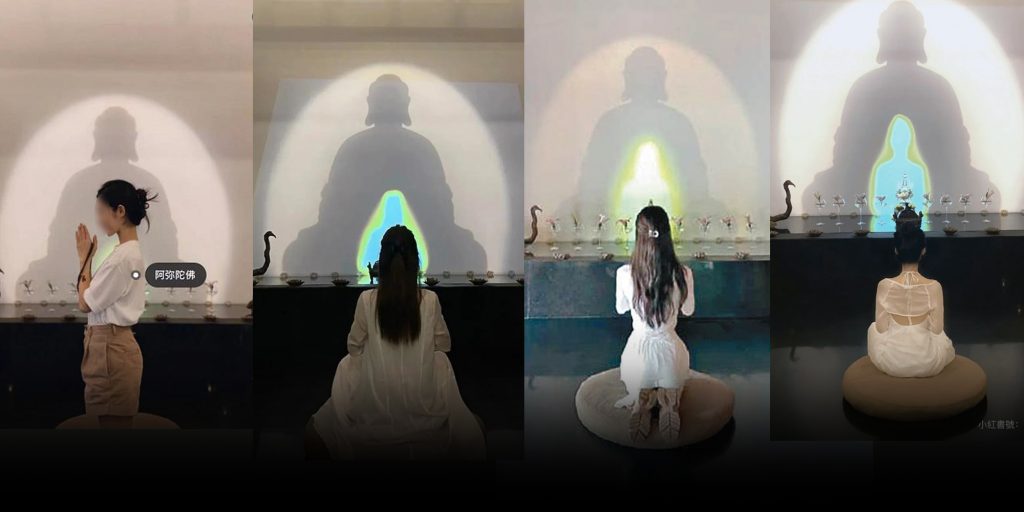Several state media outlets have criticized the trend dubbed “foyuan” for turning religion into a profit-making tool.

A woman is praying to a Buddha statue. Another one has parts of the Buddhist scriptures painted on her nails. A third sits writing religious texts but in the wrong sequence.
The women are all so-called online influencers, part of the growing community using Buddhism to boost their social media rankings. Known as foyuan — which loosely translates to “female Buddhist socialite” in English — the women usually post photos, often in seductive poses and sometimes wearing revealing outfits, with some hoping to profit from advertisements and sell products related to Buddhist culture.
The trend emerged early this year on Chinese social media, also the birthplace of other recent viral buzzwords such as tang ping — where young Chinese espoused lying flat to accomplish the bare minimum — and jing fen — for socially averse millennials who identified themselves as spiritually Finnish. And while many online trends complete their life cycle before being immortalized into the virtual ether, some are crushed — like foyuan.
On Thursday, leading social media platforms Douyin — the Chinese version of TikTok — and Little Red Book said they banned several online influencer accounts accused of hyping themselves as Buddhist socialites for spurious marketing purposes. The platforms also deleted dozens of related posts and videos involving such content. Continue to read the full article here
– This article originally appeared on Sixth Tone.





